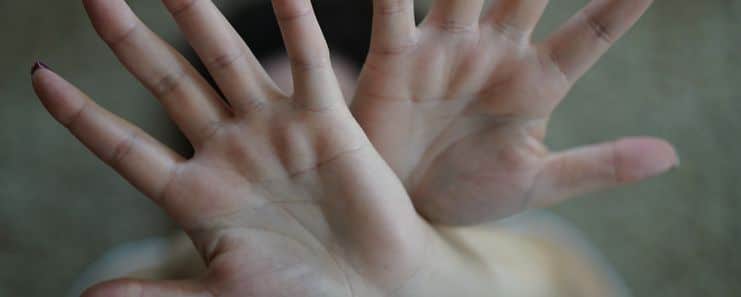Are you afraid of public speaking? Are you a little nervous when you’re asked to speak in front of an audience? Stage fright is common, and it’s natural. Keep in mind that “the only way to get comfortable with being uncomfortable is to do it.” So if you’re thinking of performing in an open mic, stand-up comedy night, or even putting on a singing show, You can overcome it. Well, whatever your reason for not wanting to talk in front of others, some tips might help you in how to overcome stage fear and also provide you with an understanding of how to become mentally strong enough as a performer.
What is Stage Fear?
Stage fear is a common phobia that makes people feel anxious and uncomfortable when faced with a stage. Stage fright can be so intense that it becomes debilitating, making it difficult to perform in front of an audience.
Stage fear can occur at any time during a performance. This anxiety is created by the anticipation of the performance and can cause physical symptoms like shortness of breath and nausea. Stage fright can be helped by learning how to control it, but in some cases, it may require the assistance of a doctor or other health professional. It can be triggered by the thought of being judged, and it can be quite disabling. Stage fear can be extremely debilitating and prevent you from being able to perform your best.
Causes of Stage Fear
Stage fear can be caused by several things:
1. Performance Anxiety
You’re worried about how well you’ll perform on stage or what will happen if something goes wrong during your performance. This type of stage fear is usually less intense than other types of stage fright because it doesn’t involve nerves about performing well or losing control over yourself (though it can still be unpleasant).
2. Intimate Performance Anxiety
You’re worried about how hot your partner will think they are when they watch you perform in front of them — or how embarrassed they’ll be if they hear audience members laughing loudly during your performance. This type of stage fright is usually more intense than other types of stage fright because it involves self-esteem issues and embarrassment that causes physical symptoms like sweating and shaking hands.

3. Social Anxiety
This can be the main cause of Stage Fear. The victim has a fear of being judged by others, especially in public. This may also be a cause of performance anxiety and can affect the ability to perform well in front of others.
Tips to Overcome Stage Fear
Stage fear is a normal part of the journey to becoming a performer. It is extremely common for performers to experience stage fright, but it doesn’t have to stop them from achieving their goals and dreams. Here are a few tips that will help you how to overcome stage fear –
1. Recognize Your Fear
Before you can overcome stage fright, you need to recognize that it’s a real thing. Stage fright is a natural reaction to the perceived risk of performing in front of an audience, but it can also be triggered by other factors. For example, if you’ve been working on a new song for months and are finally ready to share it with the world, stage fright may hit hard because you’re so close to seeing it come together. And it may be a stressful situation but you need to find out ways to reduce and overcome your stress which will ultimately help you to overcome your stage fear.

2. Talk to Other People Who Have Gone Through Stage Fear
If you want to learn more about overcoming stage fear, talk with other performers who have experienced this kind of anxiety before. You’ll find that there are many different ways to handle stage fright, but no matter what method works best for your situation, it’s important to realize that everyone has their way of dealing with the stress of performing in front of strangers. Reaching out to people is a perfect getaway on how to overcome your stage fear.
3. Avoidance is Not The Solution
Avoiding something is not going to make it not happen. It might make it worse! If you avoid something, you will miss out on experiences that can help you get over your fears. Stage fright is a normal reaction to a difficult situation. It is natural to be afraid, but it is also important to remember that fear is not always a bad thing. Fear can motivate you and make you more aware of your surroundings. If you let fear control you, it will keep you from doing things that might benefit your career or life in general.

4. Practice Makes Perfect
There is no substitute for practice and repetition for any skill or talent to become automatic or second nature. It is also a great way to improve your personality. For us to overcome our fears of speaking in public, we must practice over and over again until we have perfected our impromptu speech and are comfortable doing it without second-guessing ourselves or freaking out over small details. So, keep on practising it is a great tip to overcome stage fear.
5. Take Some Time For Yourself
Stage fright can take its toll on your emotional health, so take a little time for yourself each day to relax and unwind after work or school. Doing some exercise, listening to your favourite music will help you boost up confidence .Taking out some time for yourself before doing anything is a very good habit for a successful life.

Conclusion
Remember, everyone gets nervous sometimes. But you’re probably thinking, “Yeah, whatever.” All the same, it’s true: any performer can overcome stage fright. If you want to become a better speaker, you need to get out there and just start speaking. The first step is to determine whether you have a case of nerves or a full-blown anxiety disorder; the former can be helped by following the advice above, while the latter you can also go for recruiting anxiety counselling to learn different ways to enhance your confidence.
I hope now you are clear with the idea of how to overcome your stage fear.
More power to you!
FAQS –
1. How do I get over-stage fear?
There are many ways to deal with stage fear including deep breathing, visualization and preparation. You can also find a coach who can help you overcome your fears. Or you can also go for recruiting self-confidence counselling sessions as it is a great way to enhance confidence.
2. What is stage fright?
Stage fright is nervousness, apprehension or fear that affects your ability to perform in front of others. It may be experienced when you are about to speak in front of an audience, or when you are performing a public task such as playing an instrument, playing a role in front of an audience or giving a speech.
3. What causes stage fright?
There are many factors involved in causing stage fright including how well you know yourself and how comfortable you feel with the situation. Other factors include what you think might happen if you fail to perform well, whether you feel like your performance has been judged beforehand and whether any previous performances were successful or not so successful.
4. How common is stage fright?
More than 80% of the population experiences some form of stage fright at some point in their lives. For many people, it can be triggered by performing publicly but it can also be triggered by other situations such as public speaking during an exam or interview, or even just meeting someone new.
5. What should one do if my anxiety gets out of control during a performance?
The first thing to do is to acknowledge that it’s happening. Anxiety is a normal stress response and can be managed with time and patience. If you’re having trouble managing it, talk to the person who invited you to the performance. They may have some ideas about how to help you manage your anxiety. Or you can even look at the people around you and imagine them smiling at you. This will help you feel more confident and relaxed and serves as a great way to improve your personality.












